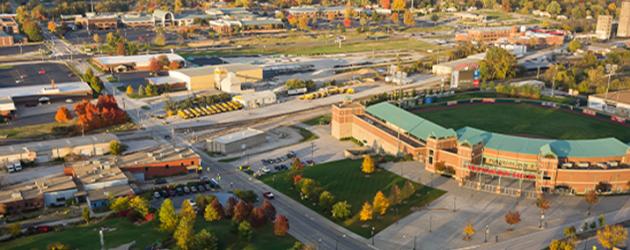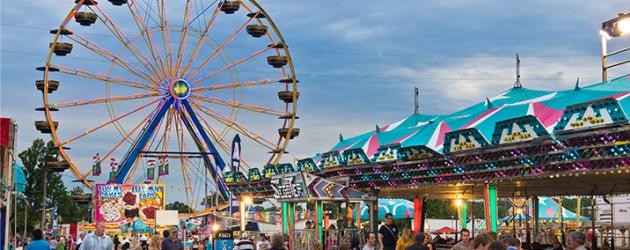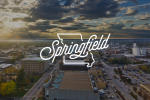A zoning ordinance regulating short-term rentals goes to the city’s Planning & Zoning Commission Jan. 11, then to City Council for public hearing on Jan. 29.
If approved, the ordinance could go into effect as early as Feb. 12 and short-term rental properties required to come into compliance with the new regulations within six months.
The ordinance is for people who rent out property via Airbnb, VRBO or other online marketplaces and would require them to have a business license and comply with other regulations aimed at protecting the safety, character and quality of life in Springfield neighborhoods.
The ordinance defines a short-term stay as the rental of an entire dwelling, or any portion thereof, for a period of not more than 30 days, where the owner is engaged in a contract for the rental of that specific dwelling, or any portion thereof. Short-term stays are further categorized as Type 1, 2 or 3, depending on the zoning district of the property and whether it is owner-occupied.
“These are rapidly expanding uses that many communities throughout the country have begun to discuss,” said senior planner Daniel Neal. “The City of Springfield is wanting to be on the forefront of these discussions with our community.
“As of fall 2017, there were about 70 single-family homes, apartment units, spare bedrooms and even living room couches in Springfield being rented out for short-term stays. We’ve heard from neighborhood organizations and have met with representatives of other stakeholder groups to incorporate their suggestions into these changes, which we feel balance the rights of property owners to rent out their properties with the rights of their neighbors to protect the safety and character of their neighborhoods.”
In addition to analyzing the city’s current ordinance, planning staff took other cities’ rules regarding short-term rentals into account and developed three categories. Each category allows for a rental of a residential dwelling for less than 30 days, currently not permitted in residential districts.
Type 1
- Allowed in Residential-Single Family (R-SF) or Residential-Townhouse (R-TH) districts.
- For owner-occupied primary residences.
- Cannot be rented for more than 95 days in a calendar year.
- Must obtain an annual business license and a certificate of occupancy, in addition to other criteria as listed in the proposed amendments.
- May not be located within 500 feet along or across the street from another short-term stay property or bed and breakfast as measured between the shortest distance between the lot lines of each parcel.
Type 2
- Allowed in R-SF or R-TH districts.
- For non-owner-occupied residences or owner-occupied primary residences for more than 95 days in a calendar year.
- No limitation on the number of days that it can be rented; however, all Type 2 properties will require a conditional use permit requiring compliance with 21 standards, a neighborhood meeting, public hearings before the Planning & Zoning Commission and City Council and approval by City Council.
- Must obtain an annual business license and a certificate of occupancy, in addition to other criteria as listed in the proposed amendments.
- May not be located within 500 feet along or across the street from another short-term stay property or bed and breakfast as measured between the shortest distance between the lot lines of each parcel.
Type 3
- Allowed in all other zoning districts.
- No residency requirement or limitations on the number of days that it can be rented.
- No more than two dwelling units within a premise can be rented.
- Must obtain an annual business license and a certificate of occupancy, in addition to other criteria as listed in the proposed amendments.
- No separation requirements as in Type 1 and 2.
General provisions
- All short-term stay rental properties shall comply with the residential occupancy requirements in the ordinance, which requires that a dwelling unit may not be occupied by more than three unrelated persons in a R-SF or R-TH zoning district or four unrelated persons in a Residential-Light Density (R-LD), Residential-Medium Density (R-MD) or Residential-Heavy Density (R-HD, multi-family) district. The proposed amendments do not allow any exceptions to these residential occupancy requirements.
- Short-term stay rental properties must obtain and continually maintain a service agent business license. Licensing fees are based on gross receipts and typically range from $25 per year ($0-$10,000 in annual gross receipts) to $105 per year ($200,000 in annual gross receipts). Businesses that collect more than $200,000 in annual gross receipts are charged an additional 25 cents per $1,000. New applicants will be asked to estimate their gross receipts for the upcoming year. The figures can be adjusted accordingly when the business renews the following year. If an annual business license is not continually obtained, the owner/business risks losing the ability to operate due to the separation requirements in Type 1 and 2 and maximum dwellings in Type 3.
City staff will process business license applications on a first-come, first-served basis.
For more information, contact Neal at 417-864-1036 or Melissa Haase, assistant director of public information and civic engagement, at mhaase@springfieldmo.gov or 417-864-1003.


















